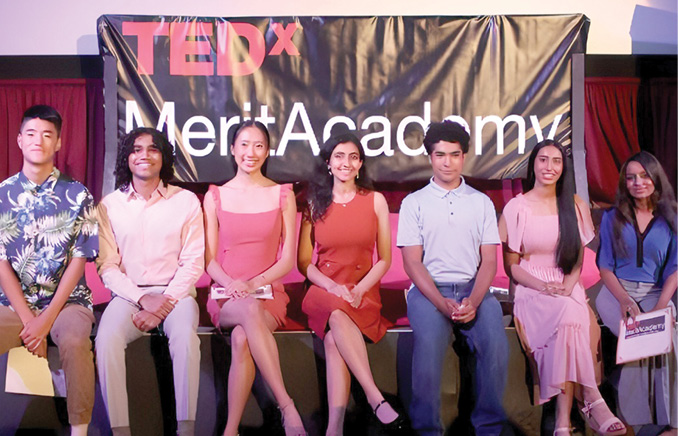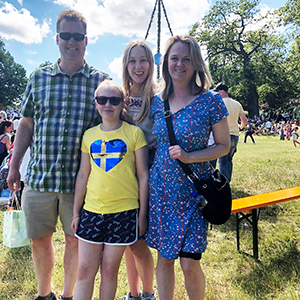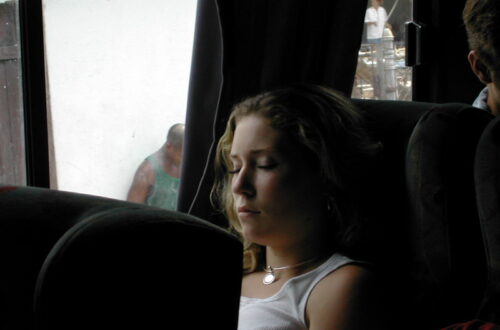Last month, TEDxMeritAcademy hosted an inspiring event featuring seven talented teen speakers who showcased their innovative projects aimed at making a positive impact on the world. This year, the event was hosted at the 418 Project in Santa Cruz.
Each young visionary shared their unique ideas, from groundbreaking environmental solutions to cutting-edge technologies and social initiatives.
Their presentations captivated the audience, highlighting the power of youth-driven innovation and the potential for these projects to transform communities and industries alike.
The event served as a platform for these extraordinary teens to inspire others to think creatively and take action toward meaningful change.
Brandon Xu
The 2020 Northern Complex Fire destroyed 318, 935 acres of land and turned the skies over Northern California a dark orange from chemicals trapping carbon dioxide particles.
As a middle schooler, Brandon Xu vividly remembers the acrid air and wondered what could be done to mitigate these types of natural disasters in the future.
As a senior, he investigated whether mycelium, fungal threads that grow in the soil beneath mushrooms, could be used to create a drywall alternative that holds up to construction standards. Not only will his mycelium wall be better in disaster situations, it also reduces carbon emissions.
Miles Elliott
Globally, we have reached a staggering 400 million tons of plastic consumption each year. Americans use an average of .75 pounds of plastic on a daily basis–that’s like throwing away over 35 pens worth of plastic every day.
While some replacement bioplastics exist, Miles Elliott, a senior in the Bay Area, wanted to see if he could add to the conversation by focusing on plastics for household use.
He created a bioplastic film alternative made from potato, alfalfa, and kelp and discovered that not only was it a viable replacement, but it even looked as clear as the “real” thing!
Abigail Mathew
Since the COVID-19 pandemic, anxiety rates have risen by 25% and one in five teens experiences symptoms of anxiety or depression. When confronted with growing anxiety among her peers, sophomore Abigail Mathew used her enthusiasm for homeopathic remedies to explore an alternative medication without some of the harsh side effects of prescription anxiety meds.
Her research led her to passion flower, a plant native to the southeastern US, that has been used in conjunction with other herbs as an anxiety treatment before, but never studied independently. Preliminary studies show a positive correlation between heart rate reduction and passion flower use.
Katie Luong
It is no secret that the education system in the United States is chronically underfunded. Schools across America suffer from massive teacher shortages, a lack of up-to-date technological resources, and a problem with both physical and mental student safety.
To solve these problems, Bay Area senior Katie Luong looks to add to the Department of Education budget through a system of taxing the wealthiest 1%, 0.1%, and 0.01% of Americans using a sliding scale based on income. Her formula would see a negligible percentage of those Americans’ taxes being used to benefit millions of children across the country
Isha Bajpai
Stories connect us, but with the growing digital divide between generations, it is harder for those narratives to be shared. More importantly, there is not a straightforward method for saving those stories for future generations.
In an effort to “store the past in the future,” senior Isha Bajpai created Video Time Capsule, an app designed to make it easy for generations to share stories from their past without the confusion present in social media platforms. Inspired by stories of Isha’s family from India, the app provides prompts to help people feel comfortable sharing the stories that make them uniquely themselves.
Kaaviya Aravind
For years, Delhi has been labeled as one of the most polluted cities in the world as a result of burning waste, unchecked vehicle emissions, and firecrackers lit during religious celebrations.
But while the air quality is so poor that at times it’s like smoking thirty cigarettes a day, small changes have been made and the daily AQI decreased by 29.4% from 2022 to 2023. Inspired by the communal changes made in her hometown, senior Kaaviya Aravind created PlanetPoints, an app that helps users see how their own small efforts towards sustainability can pay off in a big way.
Susan Tatsui-D’Arcy is the founder of Merit Academy (one-on-one classes)and Merit Educational Consultants (college and educational advisory). She has written books on projects, free child care, education, and parenting. Susan hosts TEDxMeritAcademy for students to present their innovative projects and solutions. In 2019, she was California Mother of the Year. meritworld.com









